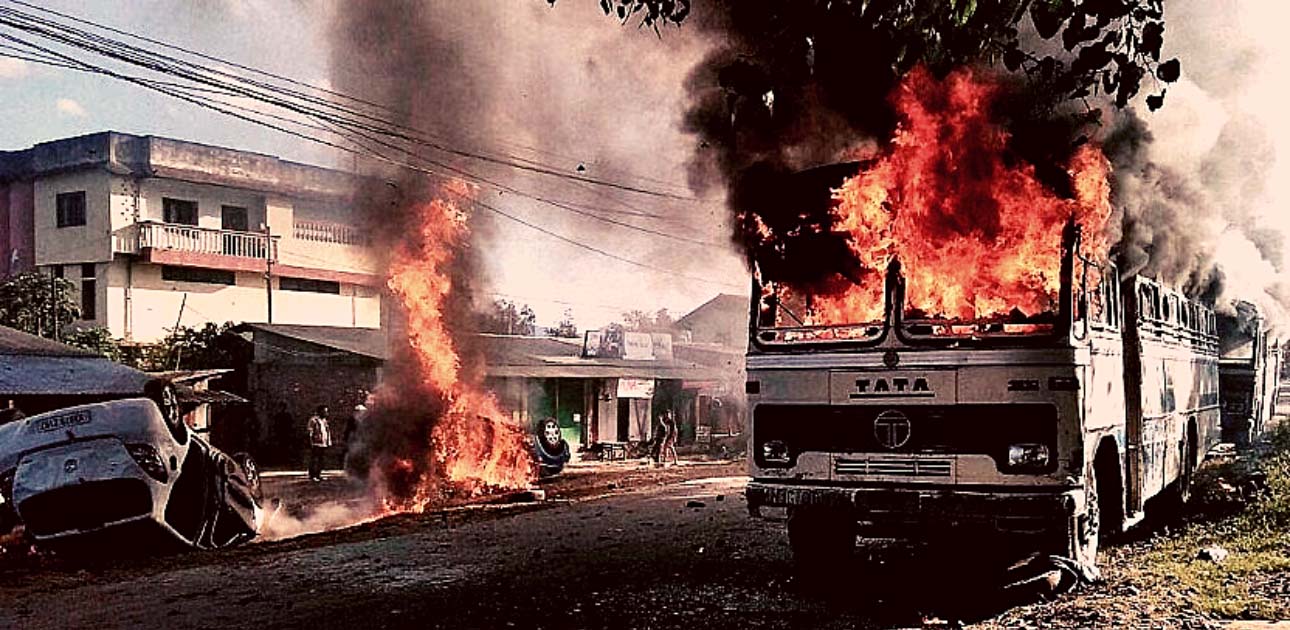| |
| Unequal justice and a complete collapse of law and order in Manipur, India |
| |
| |
 |
| |
| |
| MT Desk: The ongoing turmoil in Manipur lays bare a harsh reality—one of institutional bias, political opportunism and systemic discrimination. The Indian government’s handling of the conflict, particularly under Prime Minister Narendra Modi’s administration, highlights an alarming trend of selective justice and ethnic favoritism. While violence and unrest persist across the region, the response to alleged criminal involvement varies starkly depending on the ethnicity of the accused. Kuki-Zo youth are swiftly handed over to the National Investigation Agency (NIA), facing intense scrutiny and prolonged detention. In contrast, Meitei youth involved in similar incidents often evade such punitive measures.
This unequal treatment is not just a matter of administrative failure; it reflects a deeper erosion of democratic values and a calculated marginalization of minority communities. At the core of the issue lies a blatant political bias in law enforcement. The consistent and disproportionate targeting of Kuki-Zo individuals, despite equal participation in civil unrest from both communities, suggests a government-endorsed narrative that vilifies minorities while shielding the majority. The use of the NIA—a federal agency typically reserved for high-level terrorism cases—against young tribal individuals exposes the deliberate criminalization of a vulnerable group.
Meanwhile, the leniency afforded to Meitei youth reveals an unspoken immunity rooted in ethnic majoritarianism. This selective enforcement of justice not only undermines legal fairness but also signals institutional complicity in deepening societal rifts. Moreover, the psychological toll and uneven security measures imposed in the region further accentuate the divide. In Kuki-Zo dominated areas, security forces enforce strict curfews, make arbitrary arrests and enable a smear campaign through compliant media channels. These actions create a climate of fear, trauma and mistrust.
Conversely, violence in Meitei-majority areas often goes unchecked, with authorities turning a blind eye to mob actions, vigilante groups and targeted attacks. Such a lopsided approach blatantly violates the principle of equal protection under the law and fuels resentment and alienation among the tribal population. This biased approach is not just a governance issue—it’s a political strategy. The Modi government appears to be leveraging the crisis to consolidate support from the ethnic majority, using selective justice as a tool to strengthen a nationalist narrative.
In doing so, it risks dismantling the already fragile social fabric of Manipur. By emboldening one group and persecuting another, the state inadvertently encourages further violence, perpetuates distrust and undermines any chance of reconciliation. Real peace cannot emerge from a foundation built on injustice and discrimination.
If democracy is to mean anything in India, the rule of law must apply equally to all—regardless of ethnicity, religion, or political convenience. The unequal treatment of Kuki-Zo and Meitei youth in Manipur is not just a regional crisis; it is a national concern that demands urgent, impartial and principled action. Without it, the idea of India as a pluralistic, democratic state remains tragically incomplete.
|
| |
|
|
|
| |

|
|
Chief Advisor: Md. Tajul Islam,
Editor & Publisher Fatima Islam Tania and Printed from Bismillah Printing Press,
219, Fakirapul, Dhaka-1000.
Editorial Office: 219, Fakirapul (1st Floor), Dhaka-1000.
Phone: 02-41070996, Mobile: 01720090514, E-mail: muslimtimes19@gmail.com
|
|
| |
|

